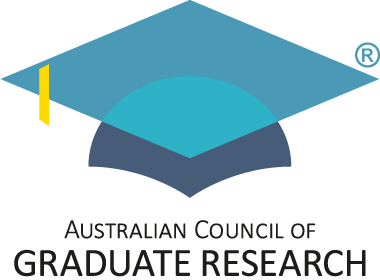ACGR Good Practice Guidelines for Aboriginal and Torres Strait Islander Research Education
Key Principle
Aboriginal and Torres Strait Islander researchers play a crucial role in advancing an innovative Australian research agenda. Aboriginal and Torres Strait Islander researchers bring unique knowledges, experiences, identities, strengths that contribute to research that has widespread benefit nationally and internationally.
Increasing the cultural capability of universities to provide a policy environment to support Aboriginal and Torres Strait Islander researchers is pivotal for enhancing Aboriginal and Torres Strait Islander led research.
Sub-principles
- Establish Aboriginal and Torres Strait Islander research education as a university priority by:
- Ensuring that the importance of Aboriginal and Torres Strait Islander graduate research is recognised across all levels of university governance and is supported by an explicit policy framework.
- Establishing ambitious but realistic targets for recruitment and graduation of Aboriginal and Torres Strait Islander graduate research candidates that are reported on as part of an adaptive management cycle.
- Recognising and celebrating the achievements of Aboriginal and Torres Strait Islander HDR candidates at an institutional level.
- Increase the number of Aboriginal and Torres Strait Islander graduate research candidates by:
- Developing a recruitment strategy by engaging with Indigenous alumni, academics, university Indigenous centres, institutions and community groups.
- Supporting the transition of Aboriginal and Torres Strait Islander undergraduates to higher degree research programs
- Conducting outreach programs to demonstrate the value of graduate research education to Aboriginal and Torres Strait Islanders and their communities.
- Engaging with Aboriginal and Torres Strait Islander professionals who are looking for career development and/or change.
- Establishing stipend scholarships that meet the unique needs of Aboriginal and Torres Strait Islander candidates and also recognise their family responsibilities and high value services they may provide in their schools and faculties (such as curriculum and assessment design, cultural advisory services, networking opportunities, or informal cultural competency training to staff).
- Providing flexible entry pathways that include bridging programs and recognize professional practice during the selection process.
- Provide culturally-competent[1] engagement and opportunities for Aboriginal and Torres Strait Islander graduate research candidates by:
- Providing welcoming, supportive and culturally safe environments.
- Developing initiatives that encourage their families and communities to support them.
- Establishing support networks of senior Aboriginal and Torres Strait Islander academics within and across institutions.
- Encourage connections to community mentors, Elders and/or expert cultural knowledge holders.
- Providing cohort support at the level of institutions and institutional groupings and encouraging candidates to join national and international peer networks.
- Providing mentoring to Aboriginal and Torres Strait Islander candidates who seek this within their candidature.
- Developing a dedicated website or other online applications that facilitate peer networking and informs candidates of the support available both within the university and through national programs such as the National Indigenous Research and Knowledge Network (NIRAKN) and the Indigenous Studies Research Network (ISRN).
- Universities adequately invest in research capacity building programs that support successful progression and completion of Aboriginal and Torres Strait Islander candidates.
- Maximise supervision capabilities for Aboriginal and Torres Strait Islander graduate research candidates by:
- Providing appropriate academic professional development training in Indigenous Research Methodologies to ensure supervisors can effectively supervise both Aboriginal and Torres Strait Islander candidates or non-Indigenous candidates undertaking Indigenous-related research
- Encouraging the practices of including an appropriately- academically qualified Aboriginal and Torres Strait Islander supervisor on supervisory panels and using appropriately-academically qualified Aboriginal and Torres Strait Islander examiners wherever appropriate
- Improving peer networks for all supervisors to share learnings and approaches.
- Promote the unique perspectives that Aboriginal and Torres Strait Islander graduate research candidates bring to knowledge by:
- Including workshops on Indigenous knowledges and intellectual property as part of the academic professional development of all graduate research candidates and supervisors.
- Including Aboriginal and Torres Strait Islander and global First Nations scholarship in relevant coursework subjects.
- Ensuring supervisors are aware of relevant national research ethics guidelines, such as the AIATSIS Guidelines for Ethical Research in Australian Indigenous Studies.
- Prepare Aboriginal and Torres Strait Islander graduate research candidates for the careers of their choice by:
- Providing guidance and mentoring for a wide range of careers and practical assistance tailored to individual needs.
- Facilitating internships with potential employers.
- Engaging with industry and Aboriginal and Torres Strait Islander and other First Nations community based organisations where appropriate to develop partnerships and collaborative career opportunities for Indigenous graduate research candidates
- Working with industry to develop partnerships and collaborative career opportunities.
1 Cultural competence includes student and staff knowledge and understanding of Indigenous Australian cultures, histories and contemporary realities and awareness of Indigenous protocols, combined with the proficiency to engage and work effectively in Indigenous contexts congruent to the expectations of Indigenous Australian peoples.
